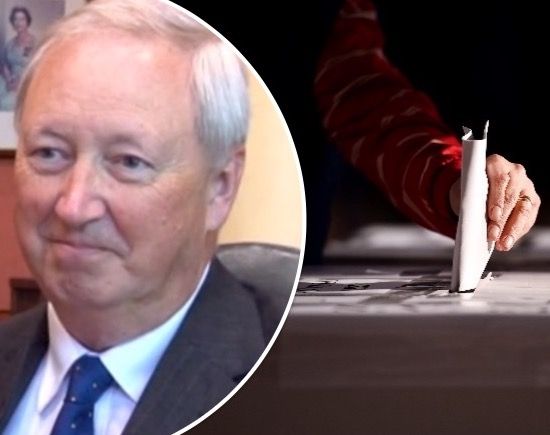

Jersey's politicians have decided that any move to end a centuries old tradition and remove the Bailiff as Speaker of the States Assembly will need to be put to the public first - but any decision they make won't necessarily be binding.
States Members agreed yesterday to ask islanders to vote on the future of the Bailiff in a referendum, following a heated and deeply divisive debate. That's if they decide to support moves to split the role as head of the States and the courts, which is likely to be voted on today.
The dual role of the island’s chief judge and ‘President of the States’ had come into question following the publication of numerous reports over the years. But the publication of the Care Inquiry report this summer, which appeared to support the Bailiff’s removal as the ‘speaker’ of the States, saw the matter put back on the agenda.
Debate over the subject has largely been a clash of tradition versus adopting what some say are more modern, democratic parliamentary standards, but the focus of yesterday’s debate was on exactly how to decide whether it was time for him to leave the States Chamber.
External Relations Minister Sir Philip Bailhache - who has previously been Bailiff himself, and whose brother, Sir William, currently holds the role – suggested a referendum on the subject. His idea was supported 25 votes to 22.
The amendment proposing a referendum on the Bailiff's presidency of the Assembly was adopted: 25 votes pour and 22 votes contre.
— States Assembly (@StatesAssembly) November 15, 2017
Among those voting against was the Chief Minister, who originally put forward plans for the Bailiff to be ousted from his chair in the States. He pointed out that the States had failed to implement the results of past referenda.
St Helier Constable Simon Crowcroft described the idea as a “wrecking motion.” Senator Philip Ozouf also issued a fierce rebuttal to the idea.
Deputy Russell Labey said that he was “embarrassed” to have recently attended a Commonwealth Parliamentary Association meeting in Australia, being one of just two jurisdictions out of the 30 to 40 present to not have an elected speaker. He said that the matter ought to be dealt with promptly, expressing concerns that, in the event of a referendum, “It’s going to go on and on and on.”
Deputy John Le Fondré said that it was important to involve the public in decision making on something that potentially “erases 700 plus years of history.” Treasury Minister Senator Alan Maclean echoed this.
“We are seeking today potentially to sweep away centuries of our history and our tradition… To do that at the flick of a button without giving the opportunity to the people of the island to have their say is entirely entirely wrong,” he said.
Video: Current Bailiff Sir William Bailhache shares his thoughts on his role.
Deputy David Johnson said that he felt it was important for there to be a referendum so that he knew which way his parishioners wanted him to vote on the matter. He added that involving the public in such an important decision might help to alleviate perceptions of ‘The Jersey Way’ detailed in the Care Inquiry, which suggested more “open considerations involving the whole community” on key decisions.
The proposals were subsequently narrowly passed.
Comments
Comments on this story express the views of the commentator only, not Bailiwick Publishing. We are unable to guarantee the accuracy of any of those comments.